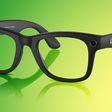Korean Carriers Reportedly Negotiating with Apple for 800/1800 MHz LTE Service on Next iPhone
Apple's next-generation iPhone is of course expected to support LTE connectivity in at least some markets, but given differences in LTE frequency bands around the world it is interesting to note that The Korea Times reports (via The Next Web) on comments from sources at current iPhone partners SK Telecom and KT claiming that they are currently in negotiations with Apple over LTE service for the forthcoming device.
"KT is in negotiation with Apple to persuade the latter to support KT’s 1.8-gigahertz frequency in Korea for the upcoming iPhone," said one senior KT executive, asking not to be identified. KT spokeswoman Kim Yoon-jeong declined to confirm.
The company, which joined the race for LTE-enabled smartphones later rivals SK and LG, is trying to persuade Apple to have its new iPhone support LTE connectivity, according to KT officials.
SK Telecom is also pushing for the same. Officials from the nation's biggest mobile carrier are currently in Apple headquarters in California to persuade Apple to support SK's LTE frequency for its local customers.
It is unclear, however, exactly what SK Telecom and KT are attempting to achieve in their efforts to "persuade" Apple to support their LTE frequencies on the next-generation iPhone, given that the hardware capabilities of the device have long been finalized. If the hardware does support the Korean carriers' frequencies and the negotiations are simply over contractual terms, it would suggest that there could be significant expansion of international LTE compatibility for the iPhone compared to the third-generation iPad.

The third-generation iPad supports LTE only over the 700 MHz and 2100 MHz frequency bands, with only a handful of carriers including AT&T and Verizon in the United States and Bell, Rogers, and Telus in Canada being supported for the device. With SK Telecom using the 800 MHz band as its primary LTE spectrum and 1800 MHz as a secondary band, and KT operating solely on 1800 MHz, the next-generation iPhone hardware would need to have new LTE frequency support for service on those carriers to even be possible. Notably, the 800 MHz and 1800 MHz bands are also the spectrum being used for LTE in Europe, Australia, and other markets, and thus hardware compatibility with those frequencies could significantly expand the number of countries and carriers on which the next iPhone could support LTE connectivity.
Popular Stories
Apple hasn't updated the AirPods Pro since 2022, and the earbuds are due for a refresh. We're counting on a new model this year, and we've seen several hints of new AirPods tucked away in Apple's code. Rumors suggest that Apple has some exciting new features planned that will make it worthwhile to upgrade to the latest model.
Subscribe to the MacRumors YouTube channel for more videos.
Heal...
Chase this week announced a series of new perks for its premium Sapphire Reserve credit card, and one of them is for a pair of Apple services.
Specifically, the credit card now offers complimentary annual subscriptions to Apple TV+ and Apple Music, a value of up to $250 per year.
If you are already paying for Apple TV+ and/or Apple Music directly through Apple, those subscriptions will...
Popular accessory maker Anker this month launched two separate recalls for its power banks, some of which may be a fire risk.
The first recall affects Anker PowerCore 10000 Power Banks sold between June 1, 2016 and December 31, 2022 in the United States. Anker says that these power banks have a "potential issue" with the battery inside, which can lead to overheating, melting of plastic...
In 2020, Apple added a digital car key feature to its Wallet app, allowing users to lock, unlock, and start a compatible vehicle with an iPhone or Apple Watch. The feature is currently offered by select automakers, including Audi, BMW, Hyundai, Kia, Genesis, Mercedes-Benz, Volvo, and a handful of others, and it is set to expand further.
During its WWDC 2025 keynote, Apple said that 13...
Apple's next-generation iPhone 17 Pro and iPhone 17 Pro Max are around three months away, and there are plenty of rumors about the devices.
Apple is expected to launch the iPhone 17, iPhone 17 Air, iPhone 17 Pro, and iPhone 17 Pro Max in September this year.
Below, we recap key changes rumored for the iPhone 17 Pro models:Aluminum frame: iPhone 17 Pro models are rumored to have an...
Apple last month announced the launch of CarPlay Ultra, the long-awaited next-generation version of its CarPlay software system for vehicles.
There was news this week about which automakers will and won't offer CarPlay Ultra, and we have provided an updated list below.
CarPlay Ultra is currently limited to newer Aston Martin vehicles in the U.S. and Canada. Fortunately, if you cannot...
Apple will finally deliver the Apple Watch Ultra 3 sometime this year, according to analyst Jeff Pu of GF Securities Hong Kong (via @jukanlosreve).
The analyst expects both the Apple Watch Series 11 and Apple Watch Ultra 3 to arrive this year (likely alongside the new iPhone 17 lineup, if previous launches are anything to go by), according to his latest product roadmap shared with...
Apple is planning to launch a low-cost MacBook powered by an iPhone chip, according to Apple analyst Ming-Chi Kuo.
In an article published on X, Kuo explained that the device will feature a 13-inch display and the A18 Pro chip, making it the first Mac powered by an iPhone chip. The A18 Pro chip debuted in the iPhone 16 Pro last year. To date, all Apple silicon Macs have contained M-series...






















